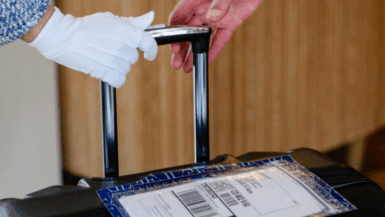When planning a trip, there are a lot of exciting things to look forward to—new destinations, experiences, and memories to create. However, no matter how well you plan, unforeseen events can sometimes derail your travel plans. That’s where travel insurance comes in. Think of it as a safety net designed to protect you against a range of potential travel mishaps, giving you peace of mind during your trip. But is it necessary? Let’s break down what travel insurance is and why you should consider getting it for your upcoming trip.
What is Travel Insurance?
Travel insurance is a policy that covers various aspects of your trip, including the possibility of accidents, illness, cancellations, or interruptions. Essentially, it provides financial protection against potential issues that could arise before, during, or after your trip. There are several types of coverage available, but here are the most common:
1. Trip Cancellation/Interruption Insurance:
Trip Cancellation: If you need to cancel your trip before departure due to illness, a family emergency, or other covered reasons, this type of insurance will reimburse you for non-refundable expenses like flights, accommodations, and tours.
Trip Interruption: If your trip is cut short due to unexpected circumstances (e.g., medical emergency, weather-related event), this coverage can help you recover some of the costs of returning home early and any prepaid, non-refundable expenses.
2. Medical Emergency Insurance:
If you become ill or injured while traveling, medical emergency insurance can cover the cost of treatment, hospitalization, and emergency evacuation if needed. This is especially important when traveling abroad, where your regular health insurance may not be accepted.
3. Emergency Evacuation:
This covers transportation to the nearest medical facility or to your home in the event of a serious illness or injury. It’s crucial if you’re traveling to remote or high-risk areas where access to healthcare may be limited.
4. Baggage Loss or Delay Insurance:
If your luggage is lost, stolen, or delayed, this type of insurance reimburses you for the cost of replacing essential items or even purchasing new clothing and toiletries while waiting for your luggage to be returned.
5. Travel Delay Insurance:
If your trip is delayed for a specified period (e.g., due to weather, mechanical issues), this coverage can help with the costs of additional accommodation, meals, and transportation during the delay.
Is Travel Insurance Worth It?
The answer depends on your specific trip and needs. Here are some factors to consider:
- The Value of Your Trip: If you’ve spent a lot of money on non-refundable bookings (flights, hotels, tours), travel insurance is a good investment.
- Health Considerations: If you have any pre-existing health conditions or are traveling abroad where medical care is costly, travel insurance is essential.
- The Destination: If you’re visiting a remote or high-risk area, medical evacuation coverage and trip interruption insurance can be particularly beneficial.
- Peace of Mind: Even if your trip is relatively low-cost or low-risk, travel insurance offers peace of mind knowing you’re protected from the unexpected.
Conclusion: Should You Get Travel Insurance?
In most cases, yes, travel insurance is a smart purchase, especially if you’re traveling internationally, have a significant financial investment in your trip, or are concerned about medical emergencies or cancellations. The cost of insurance is often a small fraction of your overall travel expenses, but the protection it offers can save you thousands in the event of an emergency or unforeseen situation.
Ultimately, travel insurance is about protecting your travel experience, your health, and your wallet. If you have any questions or concerns regarding travel insurance, call Silvestri Travel at 941.966.6535 to discuss your options and what is best for your trip!
**Amount of specific coverage is subject to the actual terms of each policy.
***When protecting yourself in case of an accident, be aware that in many places you will need to pay upfront for the services. Many countries offer “private concierge Doctors”, ambulance services, and emergency hospital care in private facilities and these are all payable at the time of service. Having the coverage will allow the peace of mind that once home you can file the paperwork on your claim. The claim should be started as soon as the accident or illness occurs so the insurance company can also assist you in country at the time of need.




